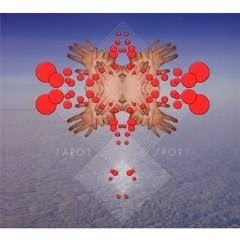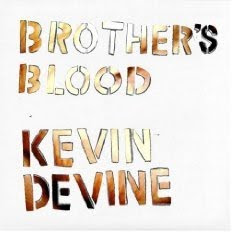Metric - Fantasies
Emily Haines is versatility personified; after the haunting, piano-led solo album Knives Don’t Have Your Back, she returned to the energetic platform that she is best known for fronting the band Metric. While previous releases seemed too overt in their disorder, Fantasies tightens the formula, and the result is enough to make the Lady Gaga’s of the world tremble in their neon-coloured boots. Haines ethereal voice is backed by thumping synthesizers and crisp instrumentation on an album that indulges the band’s potential that was always evident from the start. The triumphant “Gimme Sympathy” highlights the record you knew they were quite capable of making, but thought they never would.

Fun - Aim and Ignite
The new project from Nate Reuss of the now defunct band, The Format – both of which remain criminally under the radar – is simply named, Fun. It’s fitting, because the album is very much a clap-your-hands and stamp-your-feet affair, and let it be said: This Is What Pop Music Should Sound Like. Aim and Ignite is unassuming and, at the same time, flamboyant in a way that begs to be translated into a stage musical. The main ingredient for its success is an abundance of the rare commodity of uninhibited joyfulness; this is the sort of music that makes you nostalgic for an era that you never even knew.

The Xx - The Xx
As soon as demo’s started appearing at the beginning of 2009, it was clear that this clan of pasty British kids was worth keeping tabs on. Their self-titled debut is a harmonious gem, and an expertly crafted exercise in atmospherics. It offers a sense of immense spaciousness in its sound, the ambient guitar dynamics are complimented by the subtle texture added by a male and female duo on vocals. They are easily the best new band I’ve heard this year, and what remains startling is how a bunch of twenty-somethings handled the task with such nuance. The album is executed with veteran precision where the music, vocals and lyrics blend into a potent erotic cocktail.

Dead Man’s Bones - Dead Man’s Bones
Generally, when an actor attempts a foray into music it’s not unreasonable to expect disaster. There have been few exceptions, but Ryan Gosling has bridged the gap between screen and stage with aplomb. Behind his howl on vocals, you’ll hear distorted drums and rousing string arrangements; the whole thing sounds like it emerged from vaudeville theatre. If you can somehow imagine The Arcade Fire being filtered through The Rocky Horror Picture Show, it should give you some idea of what you’re in for. This is not an extension of Gosling-the-actor’s celebrity; it is a genuine attempt at an alternative medium by a promising musician.

Fuck Buttons - Tarot Sport
Forget that they are potty mouths; the second offering from Fuck Buttons expands on what they got right on their debut, which is creating effervescent multi-layered electronica. It’s a malleable term in their hands, because you’ll hear tribal drums and piercing vocal samples amongst the galloping beats. This time they’ve upped the tempo, and the album benefits from their reliance on a more consistent aesthetic throughout its length. Tarot Sport is a very animated record; its pulsating rhythms are certain to augment blood flow, but unlike most electronic music, it’s transcendent because it includes both heart and head in the process.

Patrick Wolf - The Bachelor
Patrick Wolf possesses a distinct thespian-like showmanship that is hard to separate from his music; his personality serves as an appendage to his creative output. A scholar of classical music, this boy-wonder has continued to push boundaries with each subsequent release, and it’s clear that he is in command of his trade. On The Bachelor, violin arpeggios are naturally accompanied by the currents of synthesizers and stuttering drums; the nomadic Wolf is able to seamlessly mesh classical elements with modern advances. He can call the style his own. Listen out for actress Tilda Swinton who sprinkles narration on some of the tracks.

Brand New - Daisy
If you follow the trajectory of this band’s albums, you’ll notice certain maturation through each. Initially a pop-punk outfit, they have evolved into serious contenders in the alternative rock scene. Their latest effort relents on the lyrical intricacy of previous releases, and instead does a fine job of melting your face off with its musical intensity. The albums intro, a 1950’s church hymn, is surely penance for the forty minutes of jarring guitar work and off-kilter vocals to follow. When the album closes and chaos subsides into the resuming hymn, it’s apparent that Brand New have released what is certainly their most polarizing album, but also their most cohesive.

French alternative band

Tegan and Sara - Sainthood
The Quinn sisters continue to up their game with an album of more elaborate compositions and the customary interplay between the two vocalists. It’s always been the most appealing thing about the band, their chemistry, and how well their affinities compliment one another. Most of the tracks on Sainthood clock in under three minutes which lends itself to concise, well-realized, albeit brief delights. It may not be as accessible as some of their previous work, but with repeated listens it really blossoms.

Kevin Devine - Brother’s Blood
It pains me how hard this man has to work to make a living off of his music. Devine’s fifth album should hopefully put any possibility of a day job permanently on the backburner. Brother’s Blood has elements of the acoustic folk of his earlier work, but its seminal numbers are full-band efforts, and as always Devine’s lyrical prowess is humbling. His wordplay and vocal delivery never overwhelm his sense of melody, and I marvel at how expansive his themes are in the same sweeping vein that makes Bob Dylan a great songwriter. On his most consistent album to date, Devine interrogates the usual suspects – god, government and girls – with a stellar soundtrack provided by his affectionately titled ‘Goddamn Band’.

Yeah Yeah Yeahs - It’s Blitz!
Lead singer, Karen O, is a prime example of a female who doesn’t need to sacrifice her femininity for appeal on a visceral scale. She is a firecracker of a front-woman; previous releases with their beer-soaked riffs and gritty tones saw her spring to life with carnivalesque charm. On It’s Blitz! she straddles the fine line between confidence and vulnerability, and while Nick Zinner still provides those patent guitar chords, the album is primarily comprised of lush electronics. The record resembles a leather jacket with glittery ribbons; prettiness has never sounded so dangerous.

Other noteworthy releases from 2009:
Au Revoir Simone - Still Night, Still Light
Monsters of Folk - Monsters of Folk
The Pains of Being Pure at Heart - The Pains of Being Pure at Heart
Why? - Eskimo Snow
Death Cab for Cutie - The Open Door ep
Modest Mouse - No One’s First and You’re Next ep
